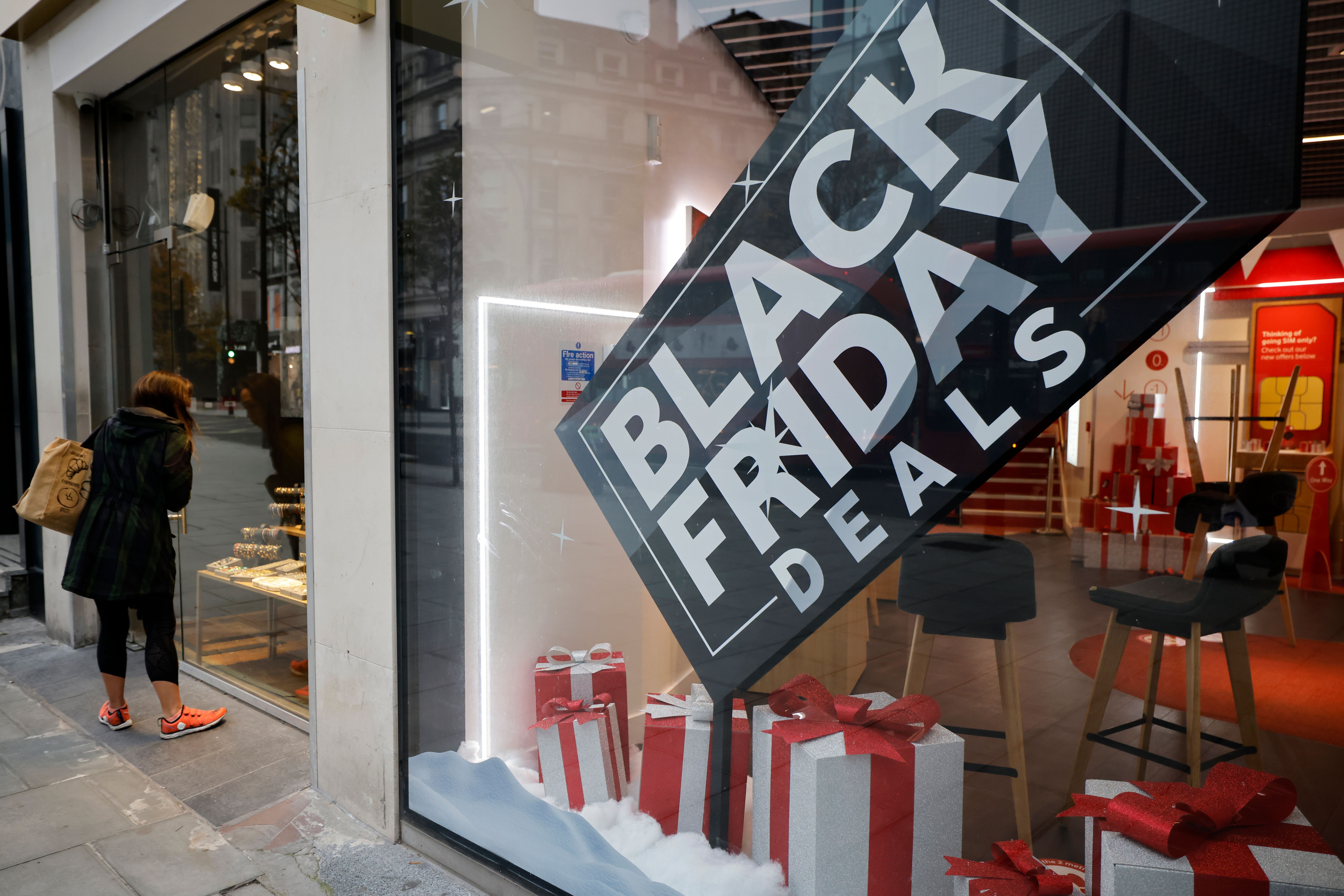Was Black Friday a bust for businesses?
What the pandemic means for retail spending this holiday season

A free daily email with the biggest news stories of the day – and the best features from TheWeek.com
You are now subscribed
Your newsletter sign-up was successful
The smartest insight and analysis, from all perspectives, rounded up from around the web:
This year, for much of the retail industry "Black Friday was a bust," said Sarah Nassauer and Suzanne Kapner at The Wall Street Journal. The question is whether it's gone for good. Foot traffic to stores for the annual shopping extravaganza fell 52 percent from a year ago. Part of the reason is that online shoppers at Amazon or Best Buy "could get many of the same deals that stores once dangled only to those who lined up overnight." Internet sales this Black Friday hit $9 billion, up 22 percent from a year ago. Many big-box retailers started offering deals in October and have kept the discounts coming for weeks. Even veteran Black Friday shoppers like 56-year-old Dalla Paye don't feel a pressing need to leave home. These days, Paye says, "whenever I need something, I just go to Amazon and buy it."
"Don't let the empty parking lots fool you," said Kim Bhasin at Bloomberg. Shoppers might not be flocking to the malls, but that doesn't mean they aren't spending. Last weekend may have been disappointing, but the National Retail Federation has forecast that holiday sales will still rise this year. Many of those who have "canceled vacations and fancy dinners all 2020 long" are splurging on handbags and jewelry. Others "are snatching up everything from yoga pants to video games and air fryers as the U.S. braces for a long winter of social distancing." Even without the normal foot traffic, many stores believe "the unprecedented surge in online orders" will help them bounce back from the spring shutdowns.
The Week
Escape your echo chamber. Get the facts behind the news, plus analysis from multiple perspectives.

Sign up for The Week's Free Newsletters
From our morning news briefing to a weekly Good News Newsletter, get the best of The Week delivered directly to your inbox.
From our morning news briefing to a weekly Good News Newsletter, get the best of The Week delivered directly to your inbox.
No seller is benefiting more from the crisis than Amazon, which is expecting sales to grow 30 percent over last year's holiday season, said Karen Weise at The New York Times. To handle all that demand, Amazon has "embarked on an extraordinary hiring binge," adding 427,300 employees in 10 months this year, which works out to "an average of 1,400 new workers a day." While Amazon and Walmart are fighting for warehouse workers, the "part-time gig folding sweaters at the Gap" is harder to come by, said Patrick Sisson at Vox. Retailers added roughly 625,600 temp jobs in 2018 but have announced only about half as many positions this year. The "future of retail employment" may look like the Macy's in Littleton, Colorado — a "dark store" that's been turned into a warehouse and shipping center.
Lost in the discussion of the raging pandemic and the lackluster spending is the sheer scale of Americans' accumulated savings, said Tim Duy at Bloomberg. It's true that Americans haven't been spending, but the extraordinary shutdown of economic activity has added an extra $1.4 trillion to savings. That number is "so large and out of historical context that it is difficult to comprehend." Wages and salaries are rising again, and households are showing they can "support spending without touching" their savings. Americans may not regain confidence to start spending again for a while, but when they do, the result could be "a massive amount of stimulus," and a supercharged economy.
This article was first published in the latest issue of The Week magazine. If you want to read more like it, you can try six risk-free issues of the magazine here.
A free daily email with the biggest news stories of the day – and the best features from TheWeek.com
-
 The ‘ravenous’ demand for Cornish minerals
The ‘ravenous’ demand for Cornish mineralsUnder the Radar Growing need for critical minerals to power tech has intensified ‘appetite’ for lithium, which could be a ‘huge boon’ for local economy
-
 Why are election experts taking Trump’s midterm threats seriously?
Why are election experts taking Trump’s midterm threats seriously?IN THE SPOTLIGHT As the president muses about polling place deployments and a centralized electoral system aimed at one-party control, lawmakers are taking this administration at its word
-
 ‘Restaurateurs have become millionaires’
‘Restaurateurs have become millionaires’Instant Opinion Opinion, comment and editorials of the day